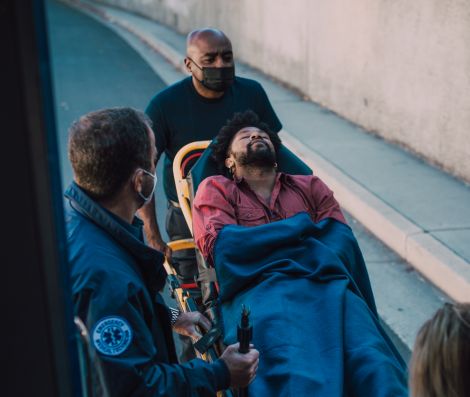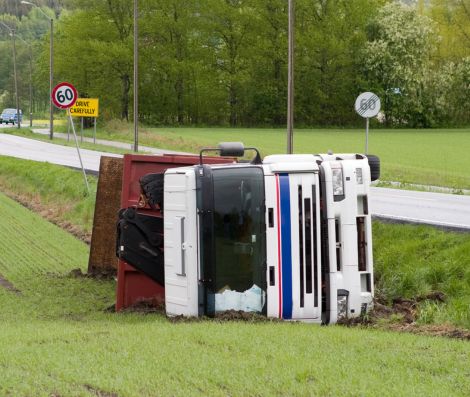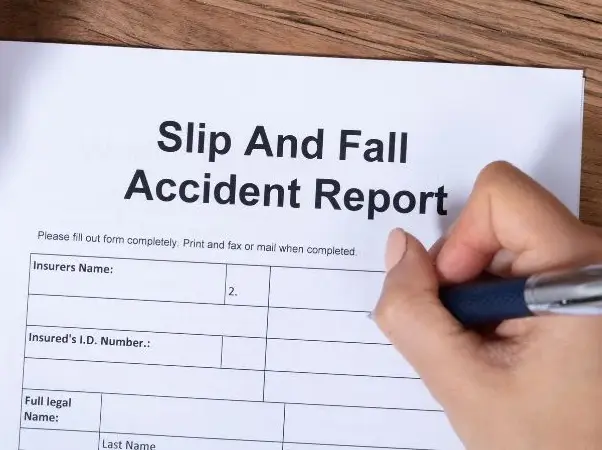Charlotte Office 704-815-6055
Asheville Office 828-252-2852
Charlotte Truck Accident Lawyer
Charlotte Truck Accident Attorney
Trucks are key to North Carolina’s economy, helping markets continue to exchange raw materials and finalized products so that businesses can continue to thrive in the state. However, truck accidents can happen. When they do, they can cause serious injury or even be catastrophic. If you have been the victim of a truck accident in Charlotte, then it’s important to get in touch with a Charlotte truck accident lawyer who can represent your case and help you work toward getting the compensation you need.

At Bridgman Gantt Law, our dedicated legal team has been working for years to support victims of commercial trucking accidents. Our accident lawyer group has been helping truck accident cases like yours by assessing the monetary value of damages and injuries, negotiating with insurance companies to get the right settlement amount, and taking the case to court, if necessary. Our team can fight for the compensation you deserve.
Commercial Trucking Accidents NC – Trucking Accident Compensation
Unfortunately, commercial trucking accidents in North Carolina are not uncommon and, in addition to damaged personal property and public infrastructure, can result in severe injury or even the deaths of the victims. Injuries that can occur due to truck accidents include:
- Traumatic brain injuries
- Lacerations
- Cuts
- Burns
- Broken bones
- Sprains
- Amputations
Along with having to suffer these injuries, the medical bills can add up. Victims may have the following medical expenses related to their truck accident:
- Hospital Bills: Overnight stays in the hospital can add up to tens of thousands of dollars. All commodities are also more expensive in the hospital. For example, an ibuprofen can cost up to 40 dollars, thus adding to an already high hospital bill.
- Assistive Devices and Prescriptions: Devices and prescriptions can add up in value after a truck accident, ranging from a temporary to permanent need for a wheelchair or a walker to the need for long-term medication so you can manage chronic pain.
- Clinic Visits and Diagnostics: Even if a truck accident victim’s condition is improving, they will still be required to go to the doctor regularly. This is to make sure that all is healing according to plan and that no unseen conditions are developing. This can require expensive diagnostics and imaging, including CT scans, MRIs, and blood sampling.
- Surgery Expenses: A trucking accident victim may sustain an injury that requires multiple intensive surgeries, which can quickly add up. They may need to have hardware implanted and taken back out, for example, or have several reconstructive surgeries.
In addition to the aforementioned medical expenses, there are a variety of other costs involved that can add up to hundreds of thousands of dollars. These financial expenses do not take into account pain and suffering, which can drastically impact an individual’s life. Due to chronic physical pain and mental suffering, truck accident victims may not be able to carry out job-related tasks or even function properly to live their daily lives.
Furthermore, trucking accident victims may be out of their North Carolina jobs for weeks at a time due to recovery from injuries sustained during the accident. Therefore, they can lose wages in the short term. If they are disabled long-term, then they may need to receive long-term disability or funds for retraining to work in another job sector.
Your Charlotte commercial trucking accident could involve:
- Medical expenses
- Short-term or long-term lost wages due to injury or disability
- Costs for repairs or replacement of personal property, including a vehicle
- Pain and suffering
No matter what you’ve endured, the experienced legal team at Bridgman Gantt Law can help you get compensated for all that you have lost.
The Blood Alcohol Limit for a North Carolina Trucker
In North Carolina, the legal limit for most drivers is a 0.08 percent blood alcohol concentration. However, for truckers in the state, this number is lower due to the severe impact that truck accidents can have. The legal blood alcohol concentration maximum that truckers can have is 0.04 percent.
If you suspect that the other driver who hit you in a commercial trucking accident was under the influence of alcohol, then a Charlotte truck accident lawyer can work with you to collect the necessary evidence and present it to the court on behalf of your case. By showing that the other driver was over the legal limit, we may be able to win increased compensation for damages.
What Are the Common Commercial Truck Driving Regulations in Charlotte, NC?
There is an international agreement that governs the movement of people and goods throughout states and between Canada and the United States. This is known as the International Registration Plan, or IRP, which North Carolina is part of. Individuals who are working commercially and have trucks must register them with the IRP if they meet the following criteria:
- Any vehicle that has three or more axles, despite the gross vehicle weight rating, or GVWR.
- Any vehicle that has a GVWR greater than 26,000 lbs and two axles or more.
- Any vehicle that is a combination of trailers, tractors, and other motor vehicles that has a GVWR greater than 26,000 pounds.
Once owners of commercial trucks in North Carolina are enrolled with the IRP, they have to follow certain rules and guidelines, which include:
- Owners must have records of all their active and inactive fleets. They must also record and report the total mileage of each vehicle to qualify for IRP renewal.
- They must hold insurance that can at least cover the requirements for minimum commercial liability.
- All owners must obtain a Common or Contract Motor Carrier number, or MC number, from the Federal Motor Carrier Safety Administration (FMCSA). Alternatively, they can get an active interstate number from the United States Department of Transportation (USDOT).
- If the fleet owner is providing commercial employment opportunities, then they will need to offer an employer identification number from the IRS.
There are strict regulations that must be followed in the United States and North Carolina to ensure that commercial truck owners and drivers are taking adequate safety measures to prevent accidents from happening. Unfortunately, even if the rules are followed, there can be devastating truck accidents. If you have been a victim of a truck accident in North Carolina, it’s critical to get in touch with a dedicated truck accident lawyer who can help you get optimal case outcomes.
What Is the 60/70-Hour Duty Limit?
The 60/70-hour duty limit is imposed by the Federal Motor Carrier Safety Administration, which is a branch of the Department of Transportation. This limit is to ensure that truck drivers are not pushing their physical limits, and it ultimately seeks to minimize the number of truck accidents. The 60/70-hour duty limit is based on seven- or eight-day-long working weeks. These work weeks begin when the 24-hour scheduling period mandated by carriers starts.
Based on this limit regulation, truck drivers who are working eight days in a row are only allowed to work 70 hours total, and truck drivers working seven days consecutively can be on duty for a maximum of 60 hours. If a truck driver has worked ten days in a row, for example, then only the last eight days that they have worked will be used to calculate the number of hours worked in the period.
There is also a possibility to set the weekly hours back to zero if drivers rest for a 34-hour time period or are not on duty during this time. It’s important to note that truck drivers are allowed to carry out other job-related tasks that do not involve driving, such as loading cargo, making repairs, and handling documentation.
At Bridgman Gantt Law, our commercial trucking accident lawyers can look into all the details after an accident happens. Specifically, we can dig into all the trucking company’s information, if necessary, to ensure that they were operating their business within the confines of state and federal regulations. If we find that they were outside of protocol, then we can bring the evidence forward to the relevant decision-makers. This can help yield optimal outcomes for our clients who were victims of the accident.
What Driver’s License Does a Charlotte, NC Commercial Trucker Need?
The driver’s license requirements are much more intensive for truckers than those who are operating regular motor vehicles without commercial use. Drivers who are operating a commercial vehicle that is specifically created to transport goods or passengers must acquire a commercial driver’s license.
Individuals who are operating military or emergency equipment, farming vehicles, and recreational vehicles do not have to carry a commercial driver’s license. Under United States federal law, drivers must meet the following requirements to apply for a commercial driver’s license:
- Depending on the type of commercial driver’s license and the vehicle, certain fees will need to be paid.
- Confirm the category of commercial vehicle they would like to drive.
- Have a commercial learner permit for a time period of a minimum of two weeks, which has an initial requirement of already possessing an A-, B-, or C-class driver’s license as well as passing a test.
- Pass a practical road test, control test, and a commercial vehicle inspection, with their own commercial vehicle being provided for use during the tests.
- Give the DMV appropriate medical certification proving that the person has adequate physical requirements to operate a commercial vehicle.
- If there are certain aspects of the driver’s physical condition under question, then a medical report must be completed and presented to the DMV.
If commercial drivers meet the above requirements, then they are eligible to apply for a Class A, B, or C commercial license. A Class A commercial driver’s license is for a combination of vehicle, tractor, and trailer that is greater than a GVWR of 26,000 lbs. None of the individual parts can exceed a GVWR of 10,000 lbs.
A Class B commercial driver’s license is for vehicles that are not combined and have a GVWR greater than 26,000 lbs. This license can be used as long as no vehicles greater than the weight of 10,000 lbs. are towed. Class C commercial licenses are for vehicles that are utilized to carry 16 or more passengers or for those that move hazardous materials.
Under the rules and regulations of the North Carolina Department of Transportation, commercial drivers who are driving school buses or tanker trucks, towing double trailers, carrying passengers or moving hazardous substances must apply for additional certification to legally operate.
If you were involved in a trucking accident in which the truck driver did not have an adequate commercial driver’s license, then a Charlotte trucking accident attorney from Bridgman Gantt Law can help fight for your case, both in and out of the courtroom.
What Are the Charlotte, NC Speed Limits for Commercial Trucks?
The speed limit varies for commercial trucks in Charlotte and North Carolina, depending on the type of terrain and the type of location, such as whether the area is densely populated. Speed limits can also vary by county in North Carolina. In certain areas of North Carolina that are particularly mountainous, and if the truck weighs more than 10,000 lbs, the commercial truck driver is required to stop at an information point to learn any special traffic rules in that setting.
It’s important to note that certain trucks that exceed a certain weight are completely prohibited from driving in the left lane on the interstate. If you were involved in a trucking accident that involved speeding or the breaking of traffic laws by the truck driver, then a knowledgeable local attorney from Bridgman Gantt Law can help gather evidence to show that the driver was at fault, helping you secure the compensation that you deserve through negotiation or litigation.
FAQs
Q: Who Is Responsible for Overseeing NC Trucking Operations?
A: In the United States, the responsible agency for overseeing the commercial trucking industry is the Federal Motor Carrier Safety Administration, or FMCSA. The state of North Carolina adheres to specific FMCSA regulations and has other responsible agencies to ensure that the state’s roads are safe. The NC Department of Public Safety, or NC DPS, investigates trucking accidents and conducts audits of commercial trucking companies to ensure compliance. The North Carolina Department of Transportation, or NCDoT, oversees all commercial shipping within the state.
Q: Is North Carolina Considered a “No-Fault” Accident State for Trucking Accidents?
A: The state of North Carolina is not considered to be a “no-fault” state for truck accidents. In fact, it is an “at-fault” state, meaning that any driver who is proven to be at fault for the trucking accident bears responsibility for any subsequent damages or harm. This means that the at-fault driver’s insurance company will need to cover the cost associated with all trucking accident damages, such as lost wages and medical bills.
Q: Is There a 14-Hour Rule in Charlotte, NC?
A: The 14-hour trucking rule is a federal law governed by the Department of Transportation. It lays out the groundwork for how truckers are allowed to work during a period of 24 hours. Under this rule, truck drivers have to push their driving into a 14-hour time frame, with a subsequent required 10-hour break. Within the 14-hour time frame, truckers are allowed to drive up to 11 hours. After the 14 hours are over, truckers are no longer allowed to drive for the next 10 hours, but they can still work on completing other tasks.
Q: Who Is at Fault for a North Carolina Rear-End Collision?
A: In North Carolina, if someone crashes into the back of another vehicle with their vehicle, then they are typically considered to be responsible for the accident. This holds true, except for some minor exceptions. For example, if the driver who was hit contributed to the accident by having broken tail lights or swinging unexpectedly in front of another car, then the other driver might not be held responsible for the accident.
Q: What Is the North Carolina Contributory Negligence Rule?
A: There are only a handful of states that adhere to the contributory negligence rule, and North Carolina is one of them. Under this rule, plaintiffs cannot recover compensation from the other involved party if they had any responsibility for the accident. This means that if a party is found to be even 1% percent liable, then they may not get the compensation that they need. Therefore, it is critical to have an experienced and passionate lawyer who can fight to gather evidence and proof that you were not at fault for the accident in any way.
Contact a Knowledgeable Charlotte Truck Accident Lawyer to Represent You
Truck accidents can be devastating due to the speed at which the vehicles are typically going on the interstate and the sheer size of a tractor-trailer. Therefore, truck accidents usually result in high-force collisions, with explosions or fires that can severely injure, disable, or kill those involved. Therefore, it is critical to have an experienced truck accident lawyer from Bridgman Gantt Law represent you and help you get compensation for physical, mental, and tangible damages. Contact our team today.
Contact Us Today
Please fill out the form below and we will be in touch soon.
"*" indicates required fields


































